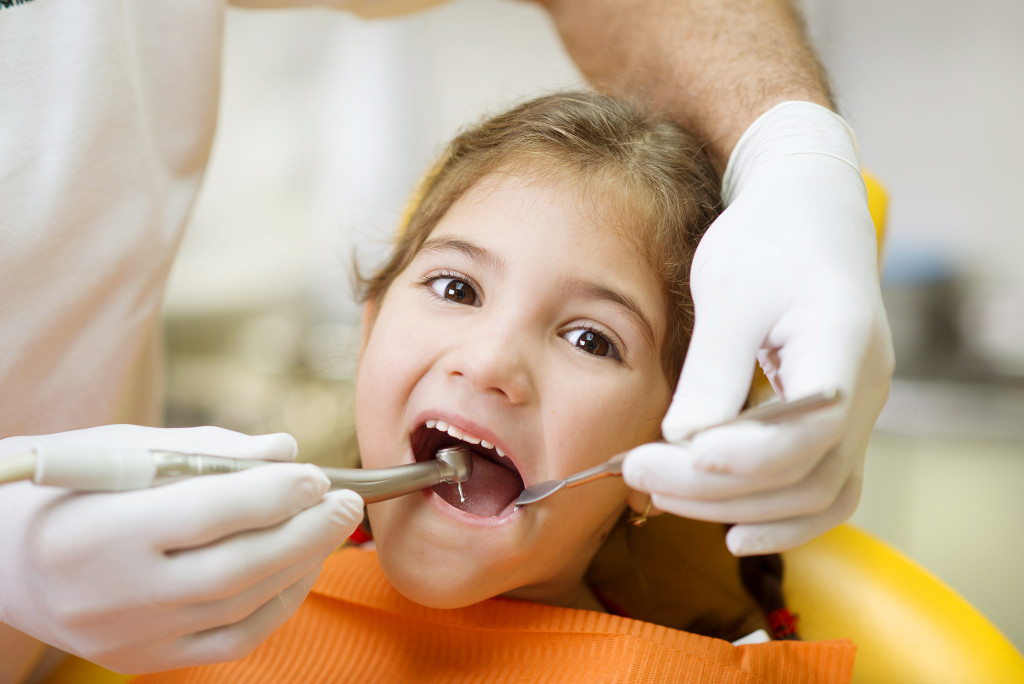- Developing good oral hygiene habits early on can prevent cavities and gum disease later in life.
- Encouraging healthy eating habits, limiting sugar, and promoting nutritious snacks can prevent tooth decay.
- Regular visits to a children’s dentist can catch potential problems early and build positive experiences for kids.
- Making oral care fun, and leading by example can encourage kids to prioritize oral health.
- To overcome challenges like dental anxiety and orthodontic treatment, parents can prepare kids, offer support, and seek professional help if needed.
Good oral health is essential for overall well-being; it is never too early to start practicing good habits. The habits children develop in their early years can significantly impact their long-term oral health. Therefore, it is essential to encourage and promote good oral health habits in children from a young age.
Starting early with good oral health habits can help prevent cavities, gum disease, and other problems. The first step in promoting good oral health is to teach children how to brush and floss their teeth properly. Parents or caregivers should supervise brushing until the child is around eight to ensure they do it correctly.
Regular dental check-ups are also vital to maintain good oral health. Children should see a dentist by their first birthday and continue to visit every six months for regular check-ups and cleanings. These visits can help identify problems early on and prevent them from becoming more serious.
This article will explore what you can do today to ensure kids have a healthy and bright smiles.
Establishing Good Habits
Good oral hygiene habits from a young age can help prevent problems such as cavities, gum disease, etc. Here are some routines you can implement early on to ensure your child grows up with healthy teeth and gums.
Brushing and Flossing
One of the most important habits to establish early on is brushing and flossing. It’s recommended that you use a soft-bristled brush to clean your baby’s teeth twice a day with a small amount of toothpaste. Once your child has teeth that are closer together, it’s time to introduce flossing. Flossing helps remove food particles and plaque that can get stuck between teeth, which can cause tooth decay and other problems. Daily brushing and flossing habits will go a long way in maintaining good oral hygiene for a lifetime.
Healthy Eating Habits
Another habit that can help prevent tooth decay is healthy eating habits. Promoting a well-balanced diet that’s low in sugar and starches is essential. Foods high in sugar and starches can create acid in the mouth, which can wear away tooth enamel over time.
Encourage your child to drink plenty of water and choose nutritious snacks such as fruits and vegetables over sugary treats. Limiting sugary drinks such as soda and juice also helps prevent cavities and helps promote overall good health.
Regular Visits to Children’s Dentists
Your child must develop a trusting relationship with their children’s dentist from an early age. Taking your child to regular dental check-ups and cleanings can help identify potential problems early and prevent them from developing into more significant ones.
Generally, it’s advised that children see a pediatric dentist or a regular dentist with experience treating children every six months. Regular visits to the children’s dentist can also help instill good habits in the sense that this can be a positive experience for children.

Encouraging Good Habits
Being healthy begins with the right habits; the same goes for oral health. Developing good habits early on ensures that your children will grow up with healthy teeth and gums. These are some of the practices that you can encourage your children to start as early as possible to ensure their oral health.
Making Oral Care Fun
One of the best ways to encourage kids to adopt good oral care habits is to make it fun. You can do this by setting up brushing and flossing challenges or competitions among siblings. You can also play songs or videos about oral care while the kids brush their teeth. Be creative; your kids will enjoy caring for their teeth and gums.
Leading by Example
Children tend to imitate adults, so it’s essential to lead by example. If you make oral care a priority, your kids will too. Start by brushing and flossing your teeth regularly in front of them. Let them know how important it is to visit the dentist for routine exams and cleanings.
Overcoming Challenges
Good oral hygiene is essential for a healthy life, starting with kids. Creating good oral hygiene practices at an early age sets a foundation for a lifetime of healthy teeth and gums. These are some practices to overcome the challenges of maintaining healthy teeth.
Dealing with Dental Anxiety
Some kids may experience dental anxiety and fear, making them avoid dental appointments. As a parent, you could help your child overcome dental anxiety by talking to them about what to expect during the visit and starting dental appointments early to acclimate them to the environment.
Moreover, using positive reinforcement and rewards or seeking professional help, such as a child psychologist, can help to address the anxiety.
Managing Orthodontic Treatment
Sometimes, kids require orthodontic treatment to correct dental issues such as crooked teeth or improper bites. Orthodontic treatment can be challenging, given the discomfort and discipline required.
You could help your child manage orthodontic treatment by preparing them for the challenges, encouraging disciplined oral hygiene practices, providing nutritious and soft foods, and offering emotional support.

Good oral hygiene is essential for a healthy life, and it starts with kids. By starting early with good habits such as brushing and flossing regularly, eating nutritious foods, visiting the dentist every six months, and making oral care fun, you can set your child up for a lifetime of healthy teeth and gums.
By leading by example and rewarding their progress in maintaining these practices, you can help them overcome any challenges when managing orthodontic treatment or dealing with dental anxiety. With proper guidance from parents and regular visits to the children’s dentist, your child should grow up with strong teeth and gums.




